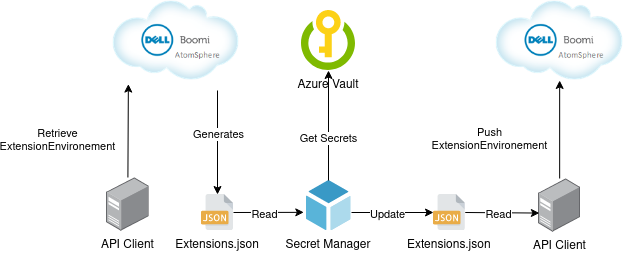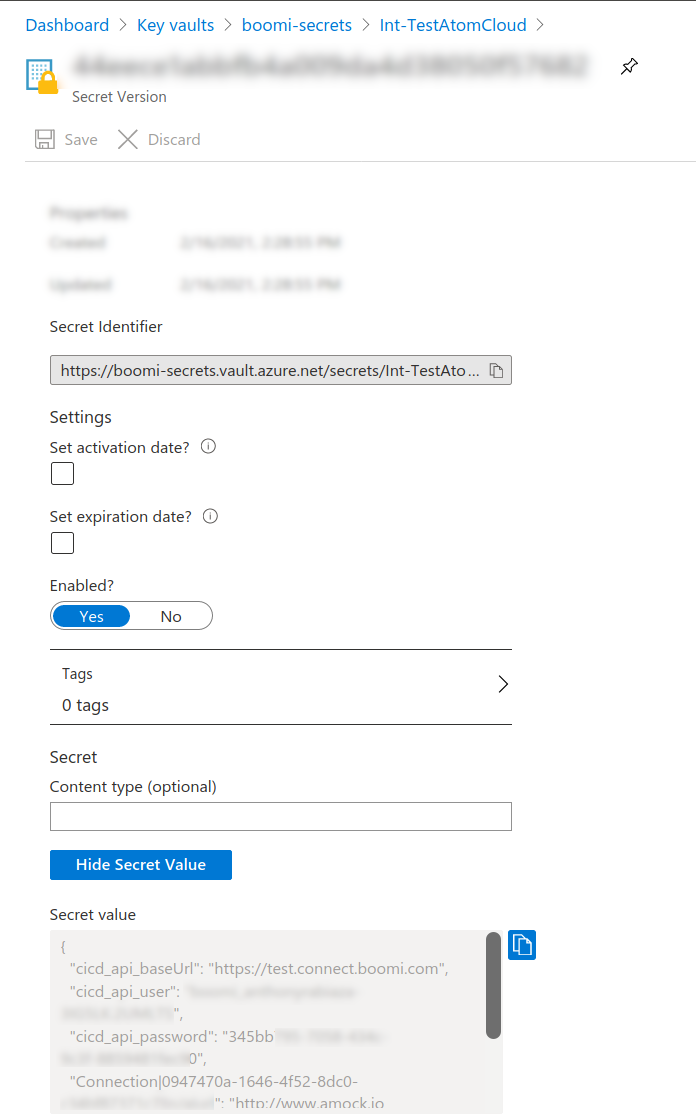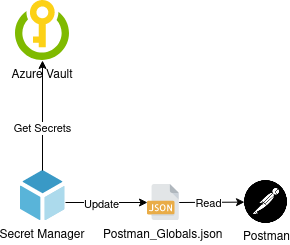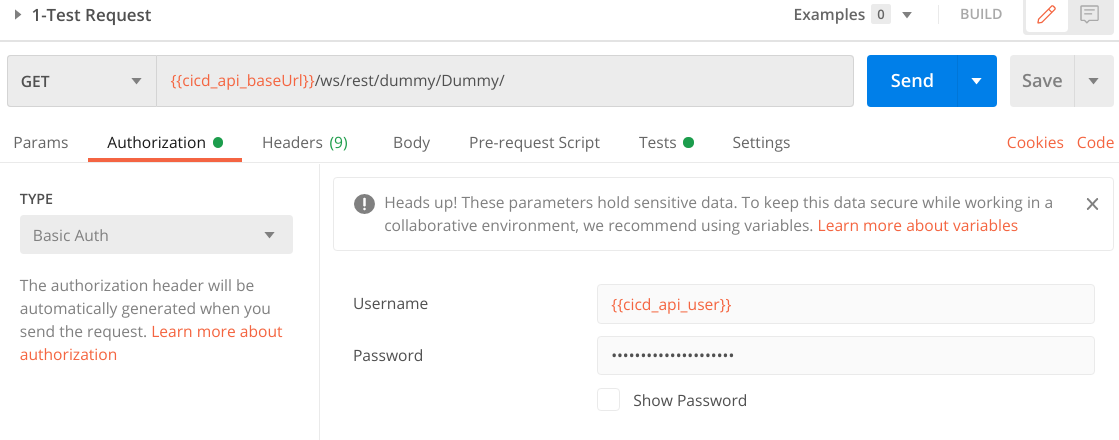I wanted to share a solution I recently developed to simplify the Management of Credentials and Connection Properties when using Dell Boomi to access secured endpoints (Database, HTTP Client, etc.)
Boomi Secret Management includes Importer which can connect to:
- AWS Secrets Manager
- Azure Key Vault
In addition to the imported, several Exporter are available:
- Boomi JSON Environment Extension
- Standard Property files
- Postman Global files
- Display
Example of execution (in 1 line):
java
-Dimporter=com.boomi.proserv.security.secretmanager.importer.AzureSecretManager
-DimporterParams="boomi-secrets Int-TestAtomCloud"
-Dexporter=com.boomi.proserv.security.secretmanager.exporter.BoomiExtensionJSONExporter
-DexporterParams="/home/ant/IdeaProjects/boomisecretmanager/componentsExtracted.json"
com.boomi.proserv.security.secretmanager.BoomiSecretManagerThe first step is the retrieval the current Environment configuration. In order to get this configuration, a call (GET) to the Environment extension API is required AtomSphere. For instance:
curl -u <username>:<password> -H "Accept:application/json" https://api.boomi.com/api/rest/v1/<accountId>/EnvironmentExtensions/<environnmentId> > <pathToJSONFile>The JSON file with the current configuration will be returned:
{
"@type": "EnvironmentExtensions",
"connections": {
"@type": "Connections",
"connection": [
{
"@type": "Connection",
"field": [
{
"@type": "Field",
"id": "username",
"encryptedValueSet": false,
"usesEncryption": false,
"componentOverride": false,
"useDefault": true
},
{
"@type": "Field",
"id": "password",
"encryptedValueSet": true,
"usesEncryption": true,
"componentOverride": false,
"useDefault": false
},
{
"@type": "Field",
"id": "host",
"encryptedValueSet": false,
"usesEncryption": false,
"componentOverride": false,
"useDefault": true
},
(...)
],
"id": "<connectionId>",
"name": "MySQL"
},This file will be provided as an export parameter for Boomi Secret Manager: using -DexporterParams argument.
The import parameters will be:
- The name of the keyvault (here boomi-secrets)
- The name of the secret (here Int-TestAtomCloud), please note that this name is also used as the name of the Environment in Boomi
For instance:
-DimporterParams="boomi-secrets Int-TestAtomCloud"The content of the Secret will be in JSON format.
For BoomiJSONExport, it will read the element starting with "Connection.", with the convention "Connection.connectionId.property=newValue" For instance:
{
(...)
"Connection.00000-ffffff-sdsdsds.url": "http://www.amock.io/api/tests", //For a HTTP Client
"Connection.11111-aaaaaa-xyzxyzx.password": "Pa$$w0rd123!", //For a Database
(...)
}Once Boomi Secret Manager is executed, the JSON File will be updated. This file can now be send back to the AtomSphere using the POST method:
curl -u <username>:<password> -X POST --data-binary @<pathToJSONFile> https://api.boomi.com/api/rest/v1/<accountId>/EnvironmentExtensions/<environnmentId>The tool is working in the manner with AWS Secrets Manager, the key differences will be that the secrets stored are key/value (the JSON will be generated automatically).
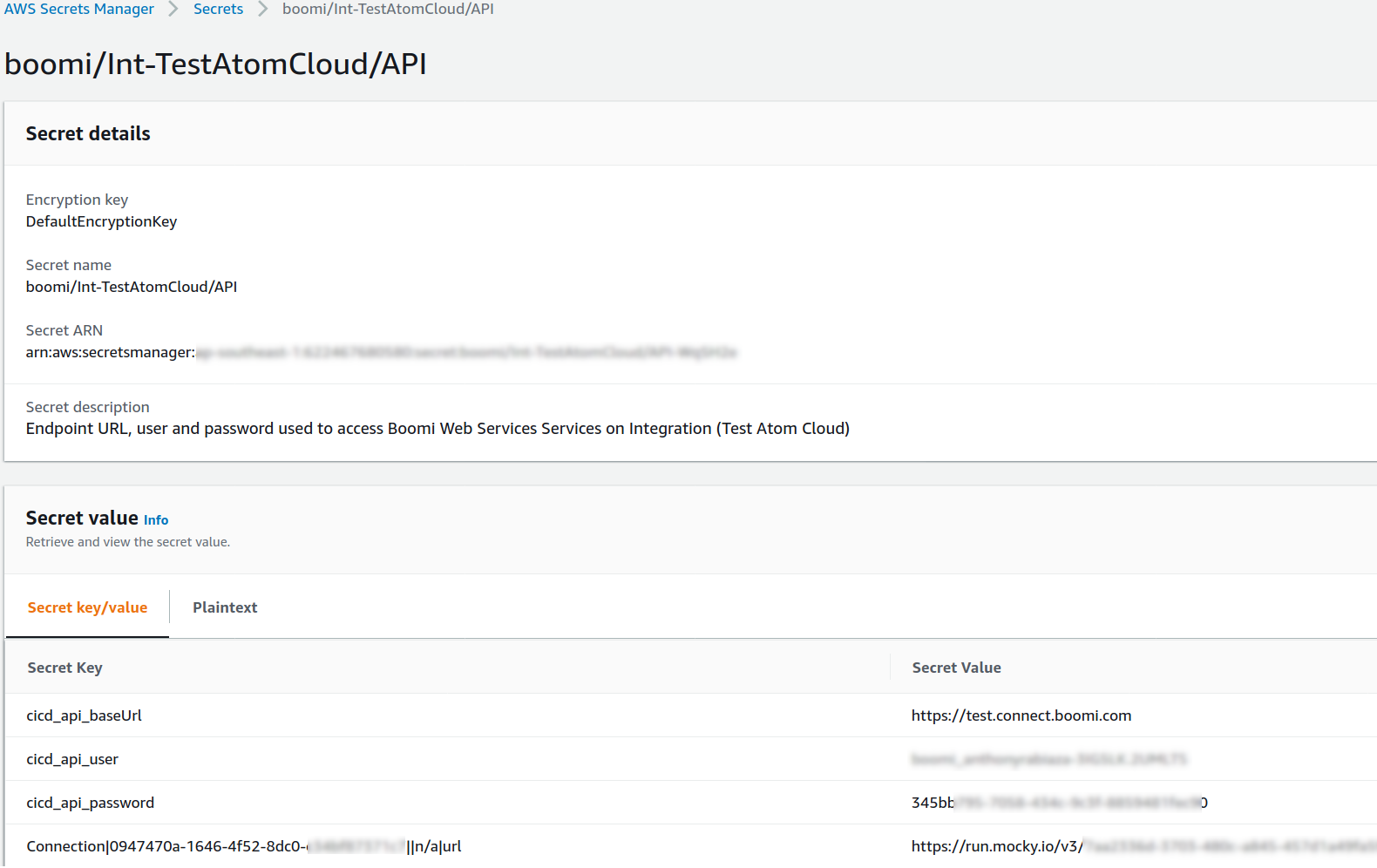
The import parameters will be:
- The name of the AWS region
- The name of the secret (here boomi/Int-TestAtomCloud/API) where Int-TestAtomCloud is the environment name
For instance:
-DimporterParams="ap-southeast-1 boomi/Int-TestAtomCloud/API"For Postman Global file generation, no existing JSON file is required as Boomi Secret Manager will generated the JSON File from scratch:
java
-Dimporter=com.boomi.proserv.security.secretmanager.importer.AWSSecretManager
-DimporterParams="ap-southeast-1 boomi/PreProd-VMWare/API"
-Dexporter=com.boomi.proserv.security.secretmanager.exporter.PostmanGlobalExporter
-DexporterParams="My_Workspace.postman_globals.json"
com.boomi.proserv.security.secretmanager.BoomiSecretManagerExample of Postman request:
And an example of Configuration in Azure Vault:
{
(...)
"cicd_api_baseUrl": "https://test.connect.boomi.com",
"cicd_api_user": "boomi_xyz_HELLO_USER",
"cicd_api_password": "abcd000-1234-789x-0000-122jd3232",
(...)
}When using Azure Key Vault, az command needs to be available. Also the login process (i.e. az login) is required before calling the Java class. See Azure docs for more details.
The two variables AWS_ACCESS_KEY_ID and AWS_SECRET_ACCESS_KEY can be defined as environment variables or aws.accessKeyId and aws.secretKe Java Parameters can be provied to the Java client. See AWS docs for more details.
